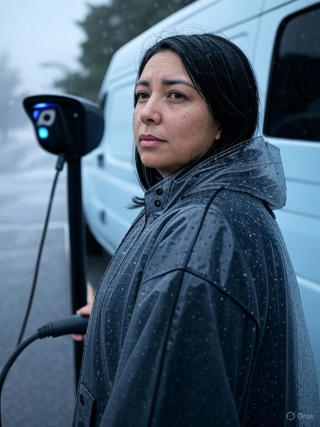Lower mileages during the lockdown and an increasing likelihood of more people continuing to work from home means electric vehicles will come out of the crisis in a strong position, according to fleets who took part in the recent Fleet 200 virtual roundtable discussion.
Some also anticipate more demand for smaller cars, while other expect staff to opt out of a company car and rent one or use a pool car when they need to travel for business.
However, messages are mixed depending on location, with some fleets believing car use could rise where people previously shared cars or used public transport; now they might want to have their own car.
Overall, though, fleets anticipate a reduction in fleet sizes.
A cultural change with people becoming used to queuing for supermarkets and planning their visits fits in well with EV charging times. Spending an hour at the shops allows plenty of time for a top-up charge.
Fleets are concerned about public charging and the numerous networks, and believe there needs to be a UK EV policy to standardise charging points and payments.
Leasing companies are starting to drive the market towards electric vehicle, with some reassessing and downgrading residual value forecasts for diesel cars, making them less competitive.
Mobility solutions remain an interesting proposition, but some fleets are finding that employees still prefer a car. However, it could be both generational and location biased. Those working and living in cities have less need for a car, while younger people – typically those not yet at working age – are widely expected to no longer want a car.
Coronavirus has forced many fleets to extend contracts, with one company admitting that around half its 500 cars were in extension of three months or more.
Other impacts include delays to fleet reviews which were to address the effect of the new WLTP emissions testing regime. But drivers are happy to wait, and their cars aren’t moving much anyway.
Contract terms might change as more businesses consider allowing staff to work from home more often. Rather than the traditional 15,000-20,000-mile contracts, quotes may more commonly be for 10,000-15,000 miles, which could reduce leasing costs.
Contract lengths might also reduce from the typical 3.5-to-four years due to uncertainty over the economic recovery.
Concerns were raised over the Brexit negotiations.
> The above was shared with Fleet News at the July meeting of the Fleet200 Executive Club.
 Join the Fleet200 Executive Club
Join the Fleet200 Executive Club
If you're a fleet decision maker interested in joining the club and attending the final meeting of this year and our meetings in 2020, email emma.bunce@bauermedia.co.uk. Membership is free.
The Fleet200 Executive Club is a group of the most influential fleets operating in the UK.
It produces research on key fleet trends and holds events which bring together the UK’s most professional fleet decision makers to debate the issues of importance to their businesses, share ideas on new initiatives and industry developments, and hear from outstanding, thought-provoking speakers.






















Login to comment
Comments
No comments have been made yet.